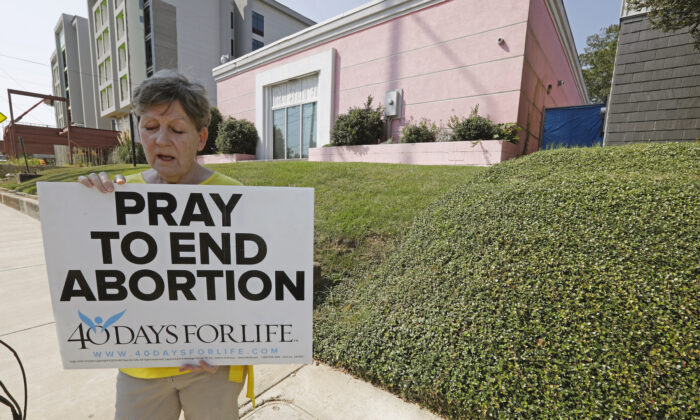US Should Recognize American Samoans as Citizens, Judge Says
A Federal U.S. appeals court on Friday declared that Mississippi’s law that bans most abortions after 15 weeks is “unconstitutional.”
The Fifth Circuit Court of Appeals said that U.S. District Judge Carlton Reeves ruled correctly when, in November 2018, he blocked the law, passed in March 2018, from taking effect. The Mississippi law sought to suspend or revoke the medical licenses of doctors who carried out abortions before the 15-week timeframe, except for a medical emergency or severe fetal abnormality.
The state’s lone abortion provider, Jackson Women’s Health Organization, immediately filed a lawsuit on the same day the Mississippi act was signed into law by Republican Governor Phil Bryant. The clinic said it only carries out abortions until 16 weeks into a pregnancy, according to The Associated Press.
Reeves, nominated by then-President Barack Obama, wrote in November 2018 (pdf) that under the U.S. Supreme Court precedent, states may not ban abortions before a fetus is viable, and the “established medical consensus” is that viability typically begins between 23 and 24 weeks. He wrote that the law “unequivocally” violates women’s constitutional rights. The state then sought to overturn Reeves’ ruling through the Fifth Circuit Court of Appeals.
In its ruling on Friday (pdf), the appeals court judges wrote, “The central question before us is whether this law is an unconstitutional ban on pre-viability abortions.
“In an unbroken line dating to Roe v. Wade, the Supreme Court’s abortion cases have established (and affirmed, and re-affirmed) a woman’s right to choose an abortion before viability,” they added. “States may regulate abortion procedures prior to viability so long as they do not impose an undue burden on the woman’s right, but they may not ban abortions.
“The law at issue is a ban. Thus, we affirm the district court’s invalidation of the law, as well as its discovery rulings and its award of permanent injunctive relief,” the judges wrote.
Mississippi had argued that the 15-week law was a regulation and not a ban and that states are allowed to regulate abortion.
But the appeals judges wrote in their ruling, “If the Act is a regulation, then the State’s interests should have been considered. Prohibitions on pre-viability abortions, however, are unconstitutional regardless of the State’s interests because ‘a State may not prohibit any woman from making the ultimate decision to terminate her pregnancy before viability.’”
The judges were quoting a U.S. Supreme Court ruling about the “ultimate decision” to terminate a pregnancy.
“[I]f the Act is a ban, the State’s interests cannot outweigh the woman’s right to choose an abortion, and the undue-burden balancing test has no place in this case,” the judges noted.
The Fifth Circuit Court of Appeals is based in New Orleans and handles cases from Mississippi, Louisiana, and Texas.
Reeves’ ruling effectively puts on hold a similar 15-week ban in Louisiana, which was signed by Louisiana Democratic Gov. John Bel Edwards in 2018 and was set to take effect only if the Mississippi law survived a court challenge.
Mississippi lawmakers in February 2019 passed a separate, more restrictive bill to ban most abortions at about six weeks, which was signed into law by Bryant. But Reeves also blocked that law, and a legal battle over it is still ongoing.
The state has the highest infant mortality rate in the country, with 9.08 out of every 1,000 live births dying before their 1st birthday, the Centers for Disease Control said in a report (pdf) in 2018. University of Mississippi Medical Center neonatologist Mobolaji Famuyide told WLBT that the rate is due to a high number of premature births and a lack of health care in rural areas.
Bryant has said that he wants Mississippi to be “the safest place in America for an unborn child.” At a news conference in November 2018, Bryant talked about what he saw as “the genocide of over 20 million African-American children” in the U.S. since Roe. v. Wade, the Associated Press reported.
“No one wants to say anything about that. No one wants to talk about that,” Bryant said at the time.
The Associated Press and Epoch Times reporter Zachary Stieber contributed to this report.
This article is from the Internet:Mississippi’s 15-Week Abortion Ban Blocked by Appeals Court
Congressman Suggests National Guard Could Enforce Gun Laws in Virginia
